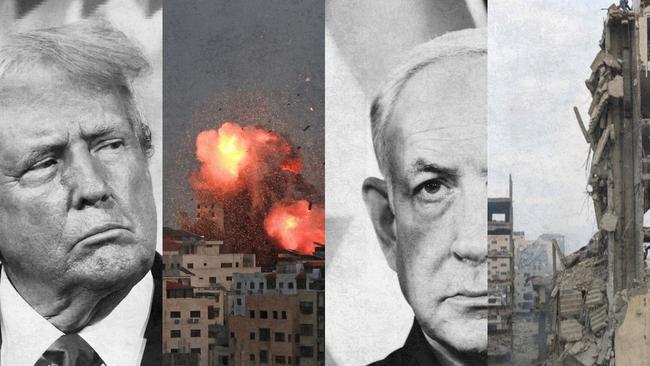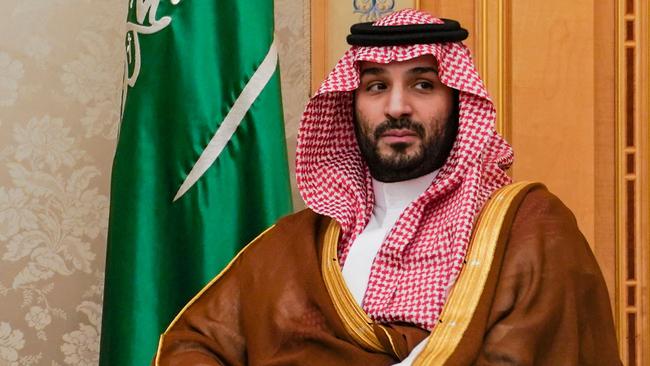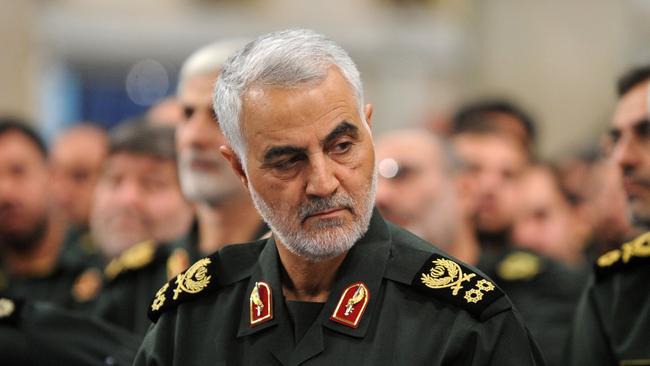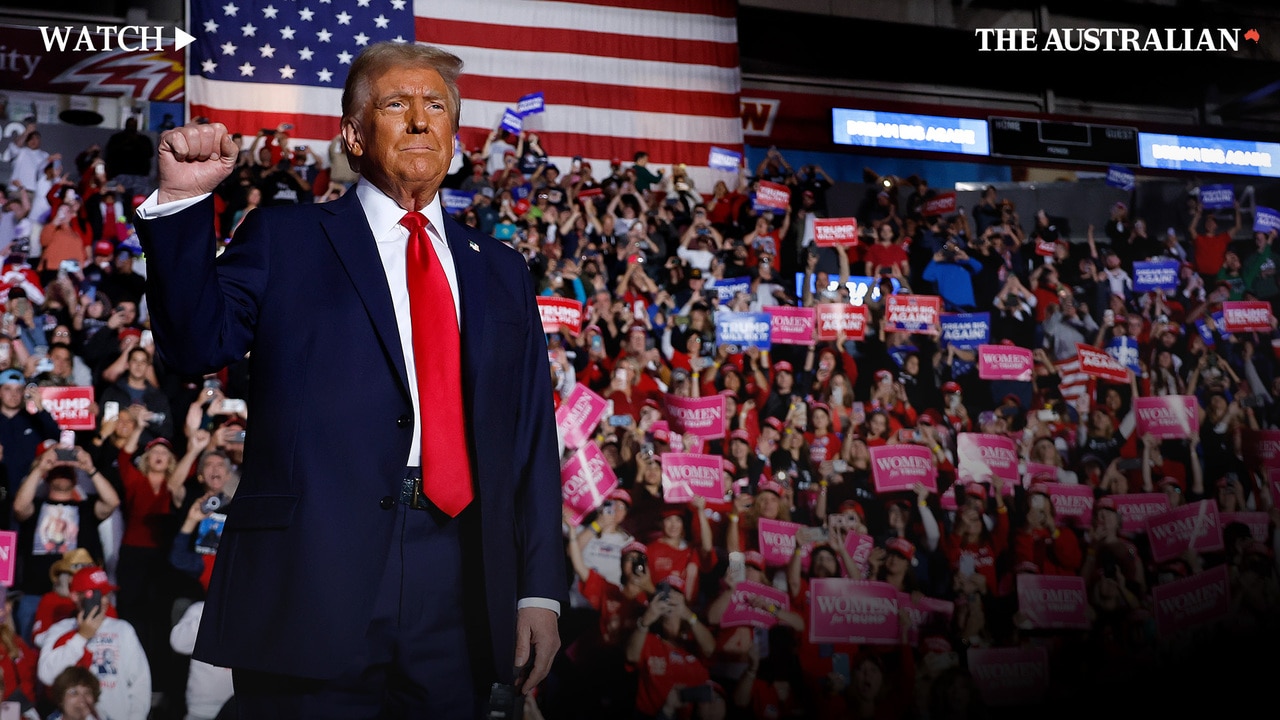Netanyahu wanted Trump back. But the Middle East has changed since 2016
The Middle East looks very different from what it did when Donald Trump first took office and so does the President-elect’s inner circle. How this will affect Israel is a risk for Netanyahu.

Israeli Prime Minister Benjamin Netanyahu and his allies celebrated Donald Trump’s win. But the stakes in the Middle East are far higher now than during the president-elect’s first term.
Trump, who has described himself as the most pro-Israel president ever, moved the U.S. Embassy to Jerusalem, recognised Israel’s sovereignty over the Golan Heights and oversaw the Abraham Accords, in which several Arab states normalised diplomatic relations with Israel.
This time, Israel is embroiled in wars on multiple fronts and has needed significant defensive help from American forces in thwarting Iranian missiles. The region is teetering on the edge of a broader war that threatens to engulf the entire Middle East and entangle world powers.
Trump’s isolationist, anti-war tendencies signal that he’s unlikely to continue the Biden administration policy of putting American lives and money on the line. How that will apply to Israel is a risk for Netanyahu. And this Trump administration is unlikely to include his son-in-law, Jared Kushner, who steered Middle East policy in Israel’s favour from 2017 to 2021.
Add to that residual anger from the president-elect toward Netanyahu for being the first foreign leader to congratulate President Biden on his 2020 win, and it becomes far less clear what the administration’s posture will be toward the prime minister and Israeli interests.
“This won’t be a repeat of 2016,” said Shmuel Rosner, a senior fellow at the Jerusalem-based Jewish People Policy Institute. “He might be willing to let Israel unleash its full power on its enemies in the short term. In the long term, he’s a more isolationist candidate and president.” Much of what Trump did for Israel during his first term required little from the U.S. Now, he comes into office with American troops on the ground in Israel manning antimissile systems and billions of dollars in defence commitments. Some of these costs are baked into the U.S.’s already approved military aid to Israel, but much of it is new spending.

Further, the Saudis have raised the cost of normalisation with Israel to now include a U.S. defence treaty and a Palestinian state.
“Trump did many things that were supportive of Israel and that the Israeli government wanted but they didn’t require a huge degree of American commitment,” said Michael Koplow, chief policy officer for the New York-based Israel Policy Forum, a pro-Israel think tank that advocates for a two-state solution. “This time around, the Israelis now for over a year have been getting huge amounts of U.S. support and the longer the fighting in Gaza and Lebanon continues, the more that is going to have to continue. That gets blown up exponentially if there is increasing conflict between Israel and Iran.” Trump’s plans for Iran are perhaps the murkiest part of his Middle East agenda, at one moment appearing to encourage Netanyahu to strike Iran’s nuclear facilities, something that could certainly trigger a broader war, while simultaneously saying he wants to avoid a war and cut a deal with Tehran.
His first term took a decidedly hawkish posture on Iran. Trump pulled the U.S. out of the 2015 nuclear pact, which imposed strict but temporary restrictions on Iran’s nuclear work. He imposed crippling sanctions on Tehran that killed off Iran’s trade with Europe and many other countries, causing an economic crisis. His decision to order the strike that killed Iranian military leader Qassem Soleimani led to pledges of revenge in Tehran, which continued after he left office. Earlier this year, U.S. intelligence officials briefed Trump on alleged threats by Iran to assassinate him.

Simultaneously, Trump has said he doesn’t want conflict with Iran and that he isn’t seeking regime change but wants to ensure Tehran doesn’t develop a nuclear weapon. That has come wrapped in a broader promise to American voters that his administration will end wars, not start them.
The confused posture could reflect the personalities within Trump’s orbit who are vying to shape his foreign policy. His circle includes traditional Republicans who want a tough approach against American enemies, as well as those who view China as the biggest threat to U.S. power and influence. Then there is the wing of isolationists who want the U.S. to stay entirely out of foreign affairs. Who will win will play a central role in how Trump’s Middle East policy plays out.
“The administration will be a tug of war between the security hawks, the China-firsters and the true isolationists who don’t believe we have any role in the world,” said Mark Dubowitz, chief executive of the Washington-based Foundation for Defense of Democracies, a think tank that is pushing for a hawkish policy toward Iran.
Still, there are many reasons for Netanyahu to expect a Trump administration to give him more latitude as he fights Hamas and Hezbollah, especially when it comes to keeping weapons steadily flowing. The Biden administration, by contrast, has at times slowed weapons shipments to Israel. More recently, the State Department has been pressuring Israel to do more to relieve suffering in Gaza by providing more humanitarian aid, and has been threatening military funding if it doesn’t improve.
One former Trump administration official said it is hard to believe the president-elect would ever use the threat of throttling weapons shipments or military funding to try to pressure Israel, both because of his record and because of the pushback he would receive from key pro-Israel elements of his base and congressional Republicans.
“Pressuring Israel in these ways, like the Biden administration did, are toxic,” the former official said.
Those who stand to win the most from Trump’s return are Israeli settlers in the West Bank and their supporters, who want to see Israel annex at least parts of the occupied territory. The Biden administration’s policies of sanctioning violent Israeli settlers are unlikely to continue under Trump.

Israel Ganz, who heads a council representing all Israeli settlements in the West Bank, said he has spoken with former Trump administration officials who could play a role in his second term and believes they are likely to give broad license for Israel to carry out its own policies in the West Bank.
“I think that if the government of Israel wants to apply sovereignty and expand settlements and improve infrastructure, the Trump administration will support this in a wide-ranging and significant way,” said Ganz.
But Trump could also be harder for Netanyahu to manage than Biden. Netanyahu has shown a willingness to defy Biden, confident that U.S. support for Israel will continue no matter how unwilling he is to bow to American pressure. But Trump’s unpredictability could force Netanyahu to walk a much finer line.
Trump has said he wants to see the wars in Gaza and Lebanon end. Netanyahu has been reluctant thus far to accept a ceasefire deal in either arena.
“With Trump, he doesn’t have that same maneuverability,” said Yaakov Katz, another senior fellow with JPPI. “He does have to really be more aligned with Trump and not push back as much because of the uncertainty of where is Trump going to be on these issues.” – Carrie Keller-Lynn, Dov Lieber and Laurence Norman contributed to this article.
Dow Jones


